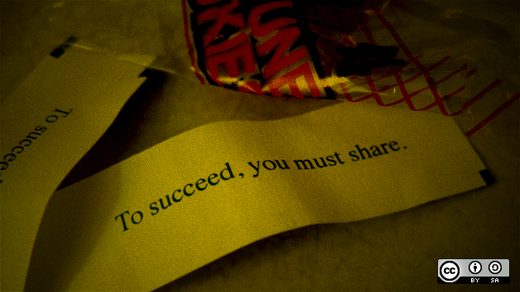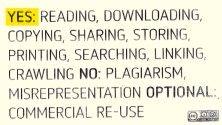The Obama administration recently responded to a petition asking the government to "require free access over the Internet to scientific journal articles arising from taxpayer-funded research."
I first heard about the petition on Google+, and am very proud to be signature #52. Back then 25,000 signatures seemed like a tall order for what is a somewhat niche area. In the end, the petition gained over 65,000 signatures and an official response from the White House. The Open Science Federation posted a screen capture of the 25,000th signature landmark on June 3, 2012. John Wilibanks started the petition with signature #1.
This petition was prompted by a growing feeling that the current publication model is broken. A concerted effort was made by research publishers to reverse the National Institutes of Health directive mandating open access to peer-reviewed publications within 12 months, culminating in the failed Research Works Act (RWA). It aimed to prevent mandates for open access for any federally funded research. In response a British mathematician, Timothy Gowers, started an online petition called, The Cost of Knowledge, calling for a boycott of Elsevier, and gained over 13,000 signatures which preceded theWhite House petition.
White House endorses open access
The response from the White House has been very encouraging, stating that the "The Obama Administration agrees that citizens deserve easy access to the results of research their tax dollars have paid for." As with everything, it is not all positive and the response is qualified by applying only to those federal agencies "with more than $100 million in research and development expenditures to develop plans to make the results of federally-funded research publically available free of charge within 12 months after original publication."
This is in line with the policy pioneered by the NIH, but some are saying that this does not go far enough as it preserves a 12 month embargo on the results of publicly funded research. Although the memorandum states that, "The Administration also recognizes that publishers provide valuable services, including the coordination of peer review, that are essential for ensuring the high quality and integrity of many scholarly publications," one must remember that this policy only affects the publication of research directly funded by federal agencies.
With the advent of the Internet and the low-cost of exchanging information, many wonder whether the services publishers provide warrant the soaring costs of journal subscriptions and profit levels. This situation has led some of the most prestigious universities in the world to encourage their faculty to publish in open access journals claiming that the past publishing model is not sustainable. It should also be noted that the people doing the peer review, as well as the editors and the authors, are largely funded from the same public funds and these activities are normally done at no charge to the publishers.
Similar bill in both houses
The Fair Access to Science and Technology Research Act (FASTR) was recently introduced to both houses, following on earlier from the Federal Research Public Access Act (FRPAA). FASTR has very similar goals, calling for all federal agencies with more than $100 million in research and development expenditures to make research publically available and free of charge within six months of original publication.
This means that we now have mandates for open access coming from both the executive and legislative branches of the US government. This comes on the back of moves in other countries, such as the UK, to "make publicly funded scientific research immediately available for anyone to read for free by 2014" (without any embargo period).
Looking to the future
These efforts are part of the broader reproducible science initiative, which not only supports open (publication) access, but advocates for open data and source code as well. This really is getting back to the roots of science where the results published in a scientific paper are expected to be reproducible, meaning data and source code must also be shared.
PLOS, and later PeerJ, are pioneering new approaches to scientific publication, along with efforts such as altmetrics to redefine metrics applied to scientific output and career progression. The Insight Journal was created as a platform for reproducible papers describing software algorithms with the core principal of ensuring reproducibility of computational methods. New services such as figshare make data, figures, and tables citable work, and promote sharing and reuse through liberal licensing.
There is strong evidence that those who share will be the new leaders in science. Emerging technologies are enabling scientists to collaborate more effectively and derive more value from research programs.
Other future initiatives require that we work to improve this software infrastructure and ensure that the licensing allows for reuse. Additionally, articles and data must provide semantically rich data and APIs that enable automatic analysis and mining. It is not enough to provide access at no cost, we must ensure that licenses such as CC-BY for publications, and CC0 for data, are used so that others may build on scientific results.
In the end, this research is being funded by taxpayers, thus scientists performing research should be expected to share the results of their work with the public, because those paying for it have every right to expect a return on their investment. As open access is one of the pillars of open science, it is something we must strive for. It is time for scientists to stop reinventing their own variation of the wheel and start standing, once again, on the shoulders of giants.






Comments are closed.